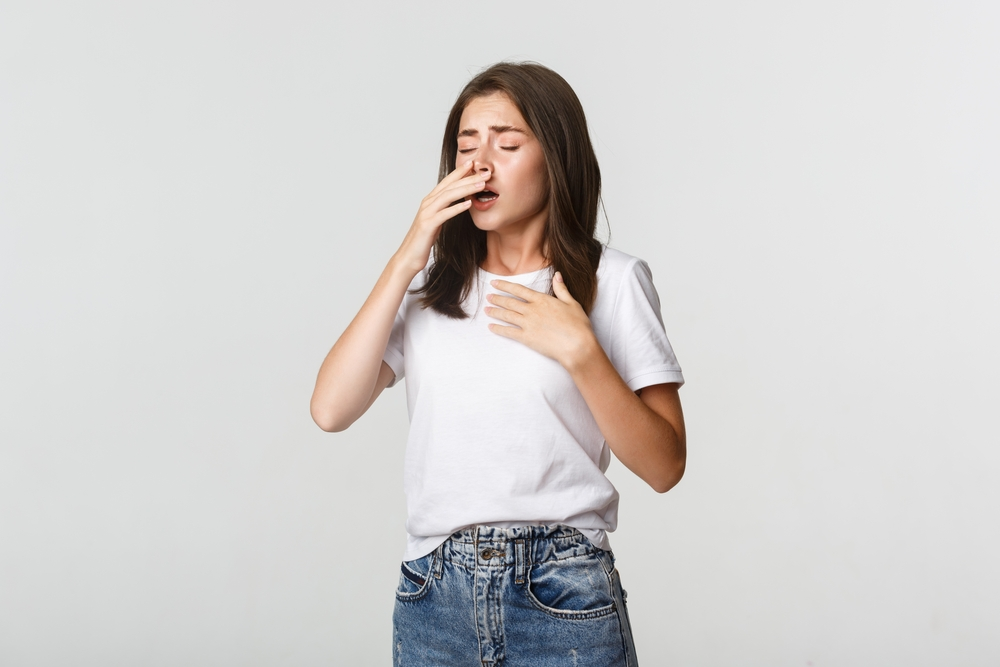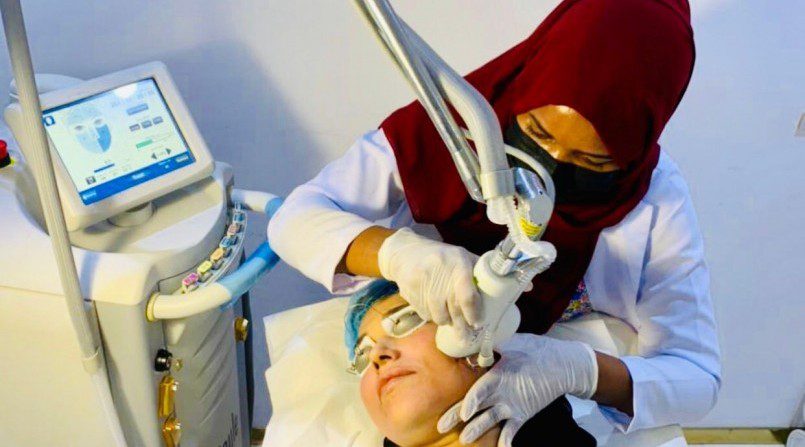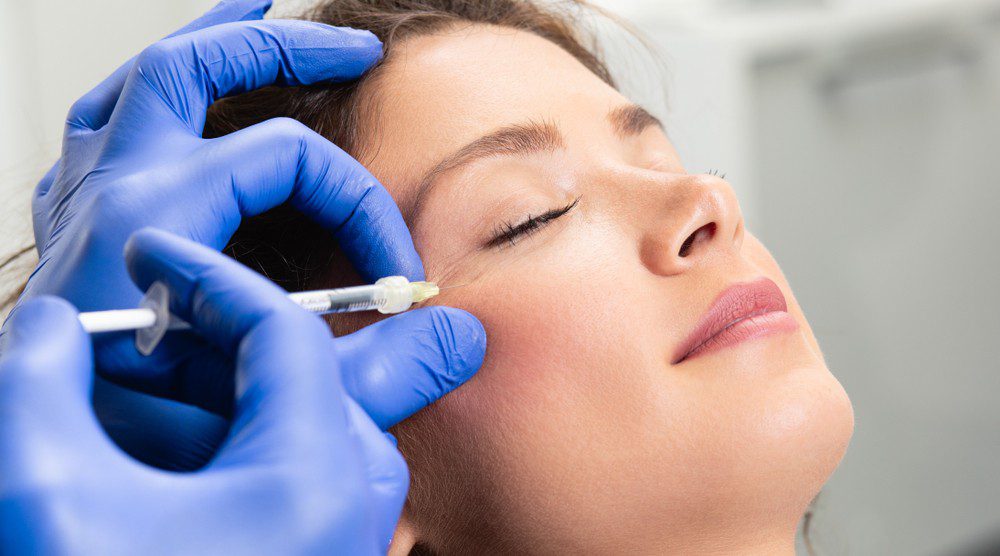Allergies - Symptoms, Causes, Treatment & Reaction

It is reported that 10% to 30% of the world's population suffer from allergies and intolerance. In the United Arab Emirates, at least 7% of inhabitants are allergic to grass pollens, causing allergic rhinitis and hay fever. Self-awareness and information dissemination are fundamental in managing allergies from a community perspective.
What are Allergies?
Allergy occurs when the body overreacts to foreign substances by inhalation, injection, or direct contact, causing physical manifestations. These substances that stimulate immune response, causing allergic reactions, are Allergens.
Allergy Symptoms
Allergic reactions may vary from person to person. The symptoms severity can range from mild to severe. The life-threatening state of allergy is known as Anaphylaxis. Allergy can affect the airways, digestive tract, skin, and sinuses.
Allergy can cause the following manifestations:
Skin Allergy Rashes
- Itching
- Redness
- Blistering
- Swelling
- Hives
Inhalant Allergy
- Sneezing
- Runny Nose
- Nasal Congestion
- Sinusitis
- Itchy throat
Eye Allergy
- Swollen eyelids
- Burning sensation
- Blurred VisionTearing
Food Allergy
- Abdominal Pain
- Diarrhea
- Nausea and Vomiting
- Gas and Bloating
Anaphylaxis
- Difficulty of breathing
- Shortness of Breath
- Drooling of saliva
- Fainting
- Severe Swelling
Causes of Allergies
Allergens are foreign substances that are usually harmless to many. In some people, allergens mistakenly trigger immune responses, causing allergic reactions. From a medical perspective, the immune system identifies the allergen as a dangerous substance or invader to the body. As a result, the body will produce an antibody called Immunoglobulin E to defend against the allergen, followed by the release of inflammatory chemicals such as Histamine.
According to medical publications, the most common allergens are:
- 1. Cow's Milk and Dairy Products, including Cheese, Yogurt, and Ice Cream
- 2. Eggs
- 3. Tree Nuts and Peanuts
- 4. Shellfish and S and Seafood
- 5. Wheat and Gluten
- 6. Soy
- 7. Some Medications, such as Penicillin and Analgesics
Allergies Tests - Diagnosing Allergies
Accurate diagnosis and identification of allergens are crucial to effectively manage allergies. Allergy can change over time; some allergens can be desensitized or naturally outgrown by the body. It is highly recommended to do an annual allergy test or at least every two years to assess the presence of allergen-specific Immunoglobulin E antibodies. The most cost-effective and efficient method of allergy testing is through Blood Testing and Skin Sensitivity Testing.
Allergy Blood Test
An Allergy Blood Test is the most efficient way of allergy testing. It is a quick and straightforward method that a licensed medical practitioner can order. The procedure can be performed on various patients irrespective of age, severity of allergy, pregnancy, and skin condition. It is also viable for children and babies; a single prick for blood collection is gentler than other methods requiring multiple skin pricks.
The test is performed by taking a blood sample from the patient; then, the specimen will be sent to a laboratory for analysis. The results will be sent back in a few days; multiple allergens can be detected with a single blood sample without the risk of exposing the patient to the allergens during the testing procedure. The licensed medical practitioner will interpret the results and develop a care plan.
Skin Prick Test
Skin Prick Test or Puncture testing is performed by introducing tiny amounts of suspected allergens intradermal using lancets or small needles.
A qualified nurse will perform multiple pricks, commonly in the patient's forearm or back. The allergens will be marked individually, and the specialist will interpret the skin's reaction to the substance. In general, if the patient is allergic to the suspected allergen, the skin develops inflammation in the form of wheal or full-blown hive within 30 minutes after administration of the substance.
The specialist will continue monitoring to rule out the possibility of an anaphylactic reaction, a medical emergency. Unlike blood testing, this method requires direct exposure of the patient to various allergens, which may result in a full-blown allergic reaction.
Skin Patch Test
Skin patch test is widely used to detect delayed allergic reactions. Most dermatologists use this approach to identify causes of skin allergy or contact allergy, such as dermatitis and eczema. The procedure involves adhesive patches treated with suspected allergens placed over the patient's back; the skin will be observed for possible allergic reaction for 2 to 3 days.
Allergies Treatment
Over-the-counter (OTC) Medication for Allergies
Anti-allergy pills or antihistamines can be dispensed without a prescription. However, getting proper guidance from a licensed doctor or pharmacist is highly advisable. The OTC medications available in the community pharmacy are the following:
- Anti-histamines – Loratadine, Cetirizine, and Benadryl
- Topical Ointment- Betamethasone Cream and Topical Steroids
- Nasal Spray- Clarispray and Cromolyn Sodium
- Decongestants- Phenylephrine and Pseudoephedrine
Prescription Treatments for Allergies
Prescription Medication can be given in emergencies known as Anaphylactic Shock. A severe allergic reaction can obstruct the airway, which might result in a medical emergency. Treatment includes injection of Epinephrine or Epi-pen; in case of Asthma Attack, bronchodilators and other injectable medications may be given.
Allergy Shots and Other Long-term Solutions
Allergen Immunotherapy Injections or Allergy Shots is a treatment given to patients with severe allergic reactions to a specific allergen. Generally, the patient resists medicine, and exposure to triggers is inevitable. The procedure involves a series of injections of purified allergen extract or sublingual tablets treated with allergen given under the tongue. This treatment can slowly desensitize or gradually increase the body's tolerance to the allergen, which will control allergic reactions.
Home Remedies for Allergies
Home remedies for allergies can improve comfort and reduce symptoms. However, self-medication should be avoided, mainly herbal and alternative medications. It is advisable to seek a Doctor consultation for well-guided treatments.
Following home remedies can reduce physical discomfort and symptoms of allergy:
- 1. Nasal Irrigation- It can improve breathing and airway clearance.
- 2. Essential Oil - sCertain types of essential oils are known to have anti-microbial and anti-inflammatory effects.
- 3. Healthy Diet - Bioflavonoids, Vitamin C, and Zinc are natural antihistamines.
Prevention, Precautions for Allergies
Effective preventive measures will depend on the identification of allergens and accurate diagnosis. Avoidance of allergens after successful diagnosis can limit the activation of allergic reactions. It is also essential to engage in preventive measures such as:
- 1. Always wear a medical bracelet indicating the Allergens.
- 2. Bring oral antihistamines or an Auto injector Epi-Pen in case of possible exposure.
- 3. Avoid places and areas where allergens are commonly found, such as pet shops, gardens, flower shops, etc.
- 4. Maintaining a clean, dust-free household, especially bedding, curtains, and carpets.
- 5. Air purifiers and installation of HEPA (High-Efficiency Particulate) filters can limit airborne allergens.
Allergy FAQs
Can allergies be cured or only managed?
As of now, there is no known available treatment that can permanently cure allergies. However, there are advanced treatments that can help the body to gradually increase the body's tolerance to specific allergens.
How can I determine what I'm allergic to?
An allergy test is needed to identify multiple numbers of allergens. It can be done through blood testing or skin patch tests.
What are the most common allergies?
Globally, shellfish is the most common allergen, followed by peanut and tree nuts. Many of the population are also allergic to pollens and animal dander.
Most Popular:
-

Sciton HALO vs Sciton BBL
Read More »September 20, 2022 -

What is profhilo, and how is it different from fillers?
Read More »September 20, 2022 -

Body contour solutions from SKIN111
Read More »September 20, 2022 -

Does IV GLUTATHIONE therapy work
Read More »September 20, 2022 -

How can an IV drip help you boost your energy
Read More »September 20, 2022